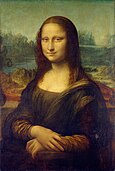Wikipedia:Main Page history/2024 August 21
From today's featured article
The Turabay dynasty was a family of Bedouin emirs who governed the district of Lajjun in northern Palestine during Ottoman rule in the 16th–17th centuries. The family's forebears had served as chiefs of Jezreel Valley during Mamluk rule in the late 15th century. During the Ottoman conquest of the region in 1516–1517, the family aided Ottoman sultan Selim I. The Ottomans kept them as guardians of the strategic Via Maris and Damascus–Jerusalem highways and rewarded them with tax farms. Although in the 17th century several of their emirs lived in towns, the Turabays largely remained nomads, camping with their tribesmen near Caesarea in the winters and the plain of Acre in the summers. The eastward migration of their tribesmen to the Jordan Valley, Ottoman centralization, and falling tax revenues brought about their political decline and they were permanently stripped of office in 1677. Descendants of the family continue to live in the area. (Full article...)
Did you know ...
- ... that the Advanced Tactical Fighter program resulted in the F-22 Raptor (pictured)?
- ... that in revenge for the torture of Polish prisoners, the terminally-ill Jan Kryst walked into the Café Adria and shot members of the Gestapo?
- ... that Panamanian earth scientist Erika Podest uses remote sensing to see how climate change has affected global soil moisture?
- ... that the Linda Lindas have recorded a cover of the song they were named after?
- ... that a South Korean church excommunicated a pastor, Lee Dong-hwan, after he performed a blessing at a queer festival?
- ... that more than 90 world leaders have made a pledge to achieve nature-positive goals?
- ... that Anna DeShawn started E3 Radio to help educate others about Black women that she did not learn about in grade school?
- ... that a Vancouver TV station was intended to stop the "$1,500 cup of coffee"?
In the news
- In cycling, Katarzyna Niewiadoma (pictured) wins the Tour de France Femmes.
- In India, doctors go on strike and protests occur nationwide after the rape and murder of a female physician in Kolkata.
- Paetongtarn Shinawatra becomes Prime Minister of Thailand after Srettha Thavisin is dismissed by the Constitutional Court.
- The World Health Organization declares the mpox epidemic to be a global health emergency.
On this day
- 1689 – Jacobite clans clashed with a regiment of Covenanters in the streets of Dunkeld, Scotland.
- 1789 – The national colours of Italy first appeared on a tricolour cockade in Genoa.
- 1911 – Leonardo da Vinci's Mona Lisa (pictured) was stolen from the Louvre by museum employee Vincenzo Peruggia and was not recovered until two years later.
- 1944 – World War II: A combined Canadian–Polish force captured the town of Falaise, France, in the final offensive of the Battle of Normandy.
- 2007 – BioShock was released in North America, becoming a critical success and a demonstration of video games as an art form.
- Alphonse, Count of Poitiers (d. 1271)
- Lady Mary Wortley Montagu (d. 1762)
- Thomas S. Monson (b. 1927)
- Frederick Seguier Drake (d. 1974)
Today's featured picture

|
Marie Curie (1867–1934) was a Polish and naturalised-French physicist and chemist who conducted pioneering research on radioactivity. Born in Warsaw, she studied in Poland until she was 24, when she moved to Paris to earn her higher degrees. In 1895, she married French physicist Pierre Curie, and in 1903 she shared the Nobel Prize in Physics with Pierre and physicist Henri Becquerel for their pioneering work developing the theory of "radioactivity" – a term she coined. She was the first woman to win a Nobel Prize. She won a second Nobel Prize in 1911, the first person to do so, for her discovery of the elements polonium and radium. Under her direction, the world's first studies were conducted into the treatment of neoplasms by the use of radioactive isotopes. During World War I, she developed mobile radiography units to provide X-ray services to field hospitals. She founded the Curie Institute in Paris in 1920, and the Curie Institute in Warsaw in 1932. This photograph of Curie was taken in around 1920 by French photographer Henri Manuel. Photograph credit: Henri Manuel; restored by FMSky and Bammesk
Recently featured:
|
Other areas of Wikipedia
- Community portal – The central hub for editors, with resources, links, tasks, and announcements.
- Village pump – Forum for discussions about Wikipedia itself, including policies and technical issues.
- Site news – Sources of news about Wikipedia and the broader Wikimedia movement.
- Teahouse – Ask basic questions about using or editing Wikipedia.
- Help desk – Ask questions about using or editing Wikipedia.
- Reference desk – Ask research questions about encyclopedic topics.
- Content portals – A unique way to navigate the encyclopedia.
Wikipedia's sister projects
Wikipedia is written by volunteer editors and hosted by the Wikimedia Foundation, a non-profit organization that also hosts a range of other volunteer projects:
-
Commons
Free media repository -
MediaWiki
Wiki software development -
Meta-Wiki
Wikimedia project coordination -
Wikibooks
Free textbooks and manuals -
Wikidata
Free knowledge base -
Wikinews
Free-content news -
Wikiquote
Collection of quotations -
Wikisource
Free-content library -
Wikispecies
Directory of species -
Wikiversity
Free learning tools -
Wikivoyage
Free travel guide -
Wiktionary
Dictionary and thesaurus
Wikipedia languages
This Wikipedia is written in English. Many other Wikipedias are available; some of the largest are listed below.
-
1,000,000+ articles
-
250,000+ articles
-
50,000+ articles




